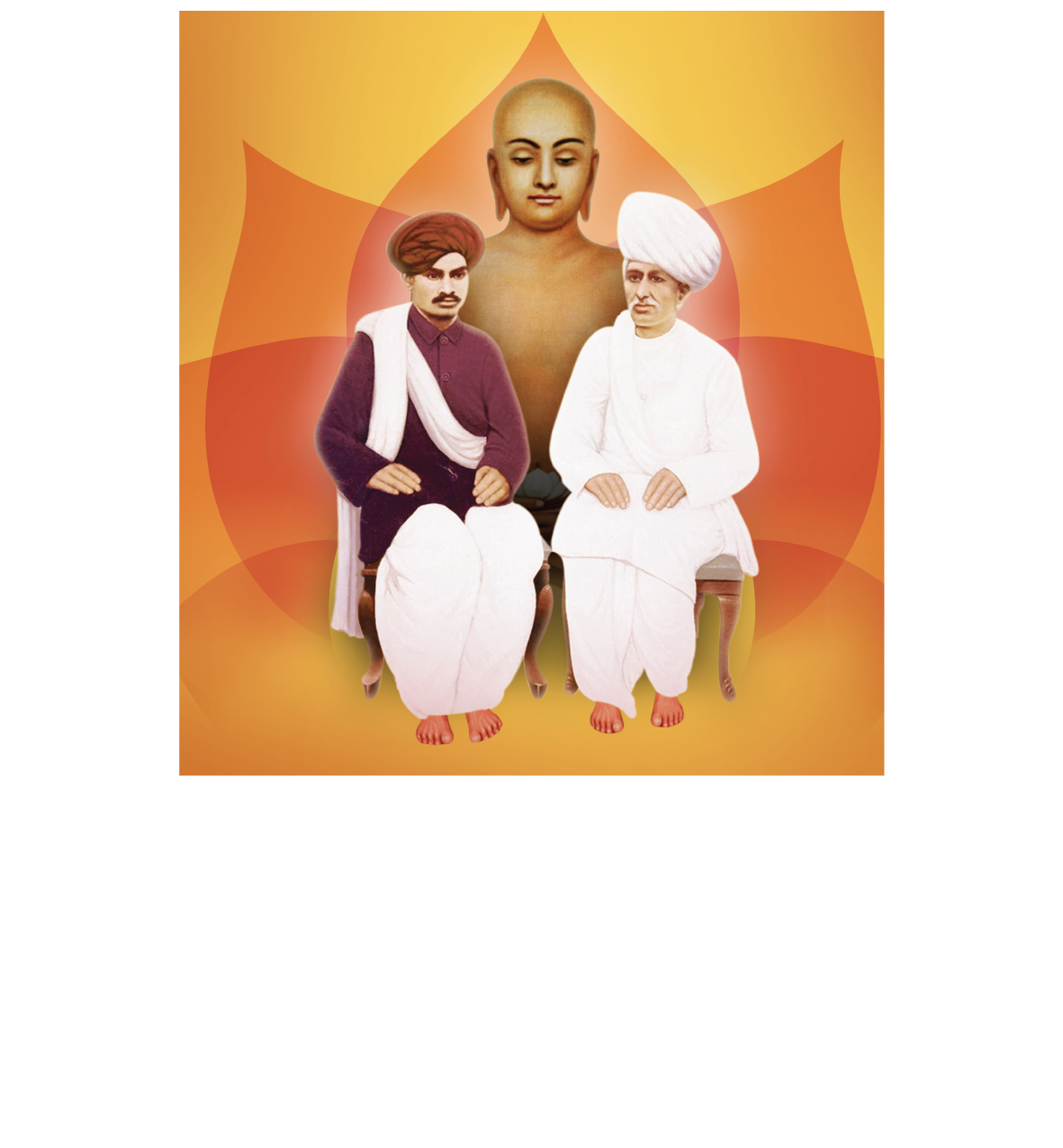Panch Sutra nu Pehlu Sutra:
Paap Pratighat ane Gun Bijadhan
Dates: 8 - 12th April 2016
The sacred Jain text 'Panch Sutra Nu Pehlu Sutra' (The First Hymn of the Five Hymns) is an age old Jain scripture containing devotional verses towards the five venerable souls (Arihants or the omniscient ones, Siddhas or the liberated souls, Acharyas or the enlightened masters, Upadhyaya or spiritual instructors and Sadhus or the spiritual seekers). Further it goes on to expound some of the most basic qualities that a Jain must possess:
1. Goon beejadhan (sowing the seeds of good character)
2. Paap pratighat (uprooting the weeds of evil tendencies)
The first word of this sacred text is "Vitraag" (free from all attachments). This is the word used to describe the state of the omniscient Lord.
The Lord Arihants have spoken thus - the soul has existed since infinite time, this universe of materialistic existence has also existed since infinite time, the universe is created out of karmic bondage (the law of causation), and the nature of the universe is that of an unending chain of sorrow.
This universe of materialistic existence can be destroyed by practicing the pure religion; to attain the pure religion evil karma must be destroyed; that can only be done upon attainment of worthiness (tatha-bhavyata); Such worthiness can only be attained by (1) Accepting the shelter of the four noble souls - the Arihants or Omniscient beings, the Siddhas or liberated souls, the noble Monks, and the path preached by the enlightened souls, (2) Sincere repentance for all of ones evil deeds in this birth and previous births, (3) Contemplation upon the virtues of the enlightened masters.
Thus, the one who desires to liberate his soul, must practice this at all times with utmost dedication.
The attainment of the Human form is the most precious of attainments, and it has only come about by the serendipitous fruition of a colossal reservoir of good karma. Our worthy souls have come such a far way on the path to complete freedom that we now need to practice religion with the following guidelines - (1) With discipline (auchitya) , (2) Continuously and in all situations, home, work, ashram etc (satat) ,(3) With an intense desire to free ourselves and with an internal love and desire to do it (satkar) & (4) In the way we have been instructed (vidhi).
One must completely surrender at the lotus feet of an enlightened master and accept his shelter with the highest devotion. Repenting over our misdeeds and contemplating upon the infinite virtues of the master, our souls shall attain worthiness, and eventually attain a pure state.
Dushkrut Garha - sincere repentance for ones transgressions. The Jain religion summarises the desire of seeking forgiveness in two beautiful words, "Michami Dukkadam".
MICHAMI DUKKADAM
MI : Stands for gentle at heart. One should cultivate a tender and humble heart.
CHA : Stands for giving up of transgressions
MI : Stands for always remaining within the boundaries of dharma
DU : Stands for cursing one's soul for all the offenses that it has committed in the past.
KKA : Stands for renouncing all the four passions (anger, ego, deceit and greed)
DAM : Stands for adopting equanimity and tranquility and thereby overcoming worldly existence.
Ekant Maun Shibir
Ekant Maun Shibir is a spiritual retreat held for 5 days for intensive spiritual striving in a conducive external environment. Participants stay in silence and in isolation during the entire shibir.
The daily programme included Param Pujya Bhaishree's param satsang on the topic of Panch Sutra nu Pehlu Sutra: Paap Pratighat ane Gun Bijadhan over the 5 days. There was 5 hours of meditation daily along with self-study, contemplation and devotional bhakti.
Aradhana Shibir
Simulataneous to the Ekant Maun Shibir was an Aradhana Shibir. This was open to all. Param Pujya Bhaishree's satsang was broadcast from the Ekant Maun Shibir. In the afternoon there was a Swadhyay series conducted by the Brahmanishts. Those with Dhyan pratpti conducted 4 hours of meditation daily along with self-study, contemplation and devotional bhakti.


